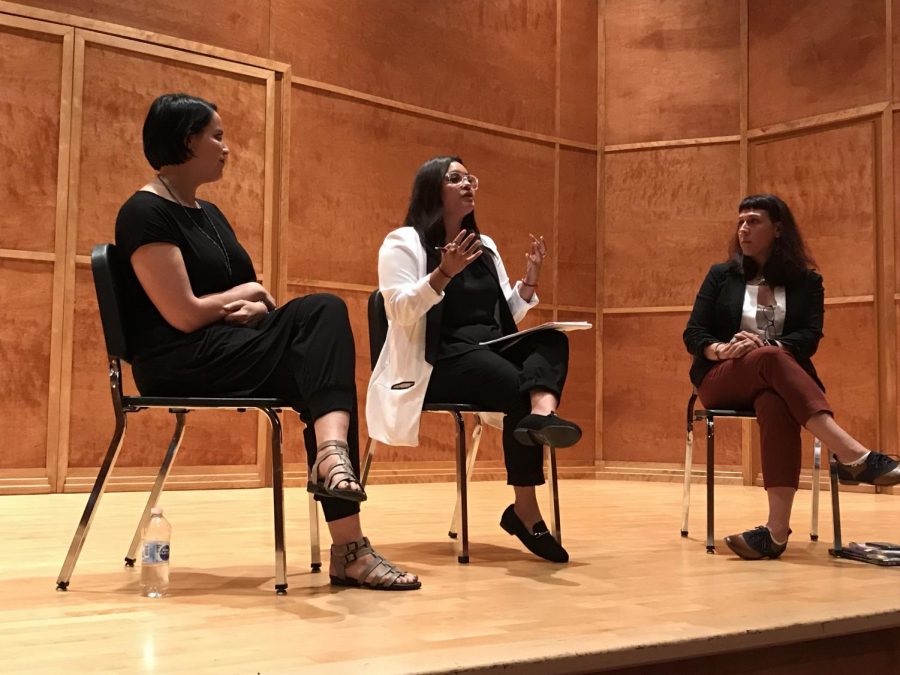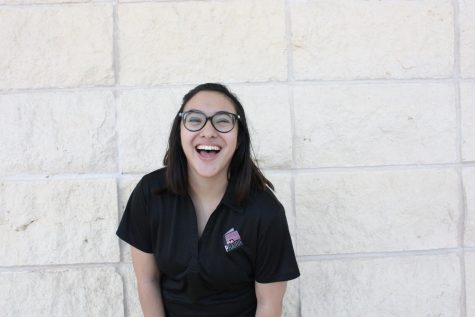Latinx poets reflect on today’s art and society
October 26, 2018
Poetry is an art that has influenced much of history. It is a way to express the views of society and how different political and social groups feel towards changes. Poetry tells the stories of many who are affected by today’s changes.
The Distinguished Lecture Series and the WTAMU Spanish program hosted a poetry reading and discussion showcasing the performances of Sarah Chavez and Eloisa Amezcua at 6 p.m. Tuesday, Oct. 2, in the Fine Arts Complex Recital Hall.
The event titled “Poetics of Crisis: Latinx Expression Today” featured the works of Latinx poets, Amezcua and Chavez. The poets discussed what it means to be a minority in America and how to express emotions about society today.
“The energy of the country right now is just so oppressive,” Chavez said. “Art provides us that vein for empathy.”
Chavez writes poetry based on ethnicity, gender, sexual orientation and working class identities. Chavez performed works from her most recent book published in 2017, “Hands that Break and Scar.”
“[Poetry] allows ourselves to express that,” Chavez said. “We can think about the things we’re not talking about.”
Chavez talked about expressing herself in today’s society. She said society does influence her work, but she does not explicitly seek out writing poetry about conflicts currently happening.
Much of her poetry is about her culture. In one of her poems she says, “But my Spanish is my language too and I know I should know.” Chavez said that she knows what people are saying when they speak Spanish, but she struggles with actually speaking the language.
“I have a lot of anxiety around my lack of fluency in Spanish,” Chavez said.
Chavez’s first experience with poetry was when her grandfather got her a book of limericks. Chavez and her friend began writing limericks making fun of her friend’s mother. When her mom found out, she was so hurt and burned the journal in front of them.
“That’s when I realized poetry had the power to create that sort of reaction,” Chavez said. “I didn’t think this is where my life was gonna go.”
Chavez and Amezcua reflected on their life as Latinas in the United States.
Amezcua is an Arizona native with a bachelor of arts in English. She said she writes a lot of poetry based on the struggles women go through on a daily basis and what it’s like coming from immigrant parents.
Amezcua has traveled across the country and has spoken in many different places, including a men’s prison to talk about art in their writing group. She had not written much poetry until she took a poetry workshop in college.
“I just needed someone to open the door for me and tell me I could,” Amezcua said.
Amezcua read poetry from her book, “From the Inside Quietly.” She writes a lot about family and culture. She said a lot of her poems are about her mother.
“This book is so much about my mom. So much so, she wants royalties,” Amezcua said.
She explained that seeing people engage in her performance reminds her that she is not only writing for herself.
Poets Amezcua and Chavez both spoke about the influence of politics and society and how it affects their poetry. They both write poetry because of the power it can have on a movement.
After both poets performed some of their pieces, a round table discussion took place. The questions ranged from today’s politics to dealing with art and life. Amezcua said she does not have a distinction between her life and art. Her life influences how she writes poetry.
CAMP Outreach Advisor, Mireya Jacuinde, led the discussion. Jacuinde said she could relate to the poets because her parents were also immigrants.
“Art is what persists beyond a movement,” Amezcua said. “The art being made now is valuable.”




